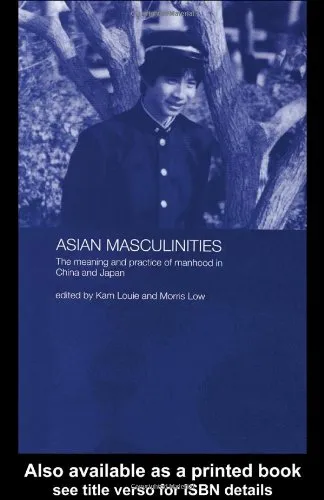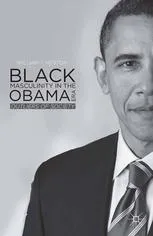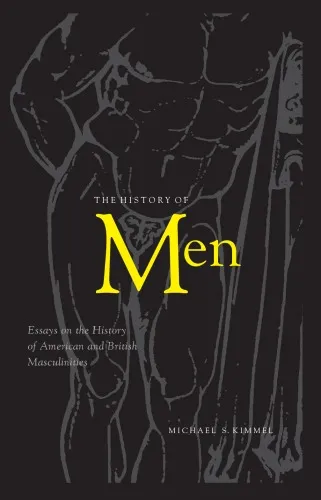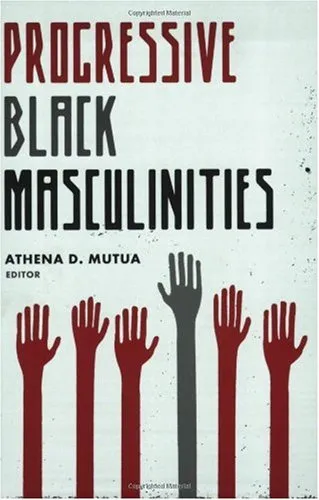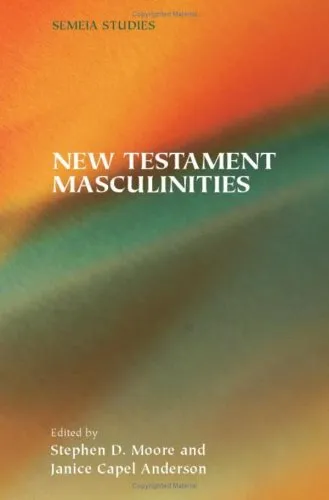Asian Masculinities: The Meaning and Practice of Manhood in China and Japan
4.0
Reviews from our users

You Can Ask your questions from this book's AI after Login
Each download or ask from book AI costs 2 points. To earn more free points, please visit the Points Guide Page and complete some valuable actions.Related Refrences:
Introduction to "Asian Masculinities: The Meaning and Practice of Manhood in China and Japan"
Masculinity is a deeply rooted and culturally intricate concept that plays a vital role in shaping the identities, relationships, and societal structures of individuals. In "Asian Masculinities: The Meaning and Practice of Manhood in China and Japan," authors Kam Louie and Morris Low deliver a groundbreaking exploration of how masculinity is conceptualized and expressed within two of Asia's most influential cultures—China and Japan. This book embarks on a comparative journey across time, offering insights into the historical, philosophical, and modern dimensions of manhood.
By dissecting myths, traditions, and popular culture, the book provides a nuanced understanding of how local and global forces have influenced definitions of masculinity. It not only challenges Western-centric views of gender but also contributes to the broader discipline of gender studies by illuminating non-Western practices and ideals. With its interdisciplinary approach, "Asian Masculinities" appeals to readers across multiple fields, including sociology, history, anthropology, and cultural studies.
Detailed Summary
The book delves into how Chinese and Japanese perceptions of masculinity have evolved over centuries, shaped by Confucianism, Taoism, Buddhism, Western influences, and socio-political changes. The authors emphasize the importance of understanding masculinity not as a universal concept but as a cultural product shaped by specific historical contexts and ideologies.
In China, masculinity has historically been viewed through the binary of wen (cultural and scholarly refinement) and wu (physical prowess and martial power). These complementary ideals form the foundation of Chinese male identity, even as modernity has redefined these values under the pressures of urbanization, industrialization, and globalization.
Meanwhile, Japanese masculinity is explored through its feudal history, including the samurai code of bushido, which emphasizes honor, loyalty, and discipline. The book also dissects the rise of "salaryman" culture in post-war Japan and its impact on contemporary gender norms. The authors examine how these archetypes have adapted or resisted the increasingly Westernized concept of masculinity.
Throughout the book, Louie and Low draw on literature, film, art, drama, and modern media as key resources to demonstrate how masculine ideals are portrayed and perpetuated. By presenting a comparative analysis, the book highlights both the similarities and the distinctive ways in which masculinity is practiced in China and Japan.
Key Takeaways
- Gender identity is deeply influenced by cultural, historical, and philosophical contexts rather than being a universal attribute.
- The wen-wu binary in Chinese masculinity provides a unique framework to understand scholarly and physical ideals of manhood.
- Japanese masculinity’s evolution, from samurai values to modern salaryman culture, reflects the tension between traditional and modern influences.
- Asian gender ideals often intersect with Western notions of masculinity, creating hybrid identities in a globalized era.
- The study of Asian masculinities contributes to broader discourses in gender studies by providing non-Western perspectives on male identity.
Famous Quotes from the Book
"The wen-wu dyad is at the heart of Chinese masculinity, where scholarly refinement and martial valor balance the competing demands of intellectual and physical prowess."
"The Japanese salaryman is not simply an economic figure; he is a cultural construct embodying post-war Japan’s collective aspirations and anxieties."
Why This Book Matters
In a world increasingly interested in diversity and inclusion, "Asian Masculinities" stands as a critical text that broadens our understanding of gender beyond the Western paradigm. By focusing on the distinct pathways of masculinity in China and Japan, the book not only sheds light on their cultural histories but also challenges readers to reimagine gender in more global and diverse terms.
For researchers and students, this book offers invaluable insights and serves as an essential resource in gender studies, Asian studies, sociology, and cultural studies. For general readers, it provides rich and accessible narratives that unravel the historical complexities of manhood in two of the world’s oldest civilizations. "Asian Masculinities" is not merely an academic endeavor—it is a cultural lens that deepens our appreciation of identity, belonging, and societal expectations.
Free Direct Download
You Can Download this book after Login
Accessing books through legal platforms and public libraries not only supports the rights of authors and publishers but also contributes to the sustainability of reading culture. Before downloading, please take a moment to consider these options.
Find this book on other platforms:
WorldCat helps you find books in libraries worldwide.
See ratings, reviews, and discussions on Goodreads.
Find and buy rare or used books on AbeBooks.
1684
بازدید4.0
امتیاز0
نظر98%
رضایتReviews:
4.0
Based on 0 users review
Questions & Answers
Ask questions about this book or help others by answering
No questions yet. Be the first to ask!
